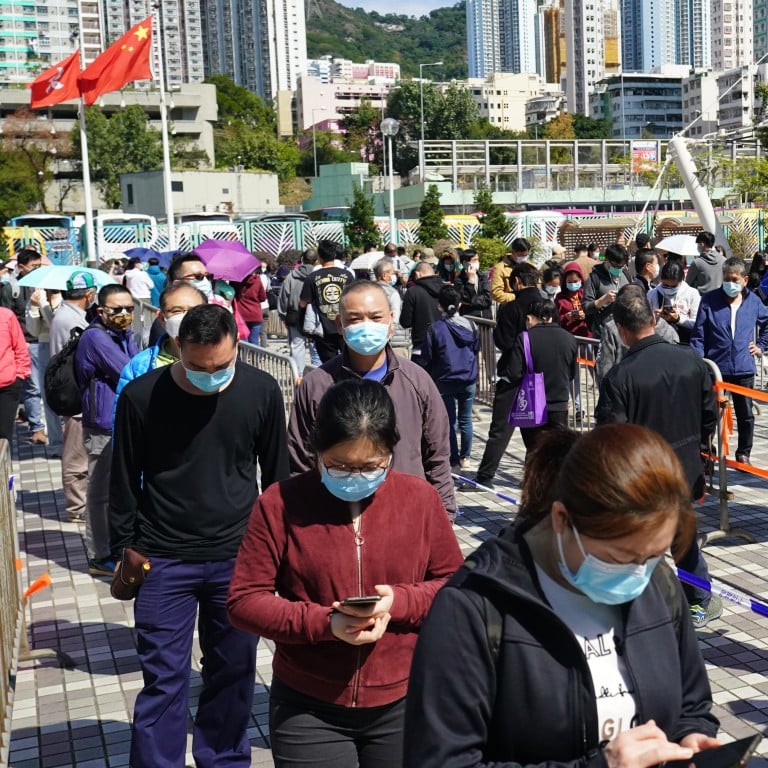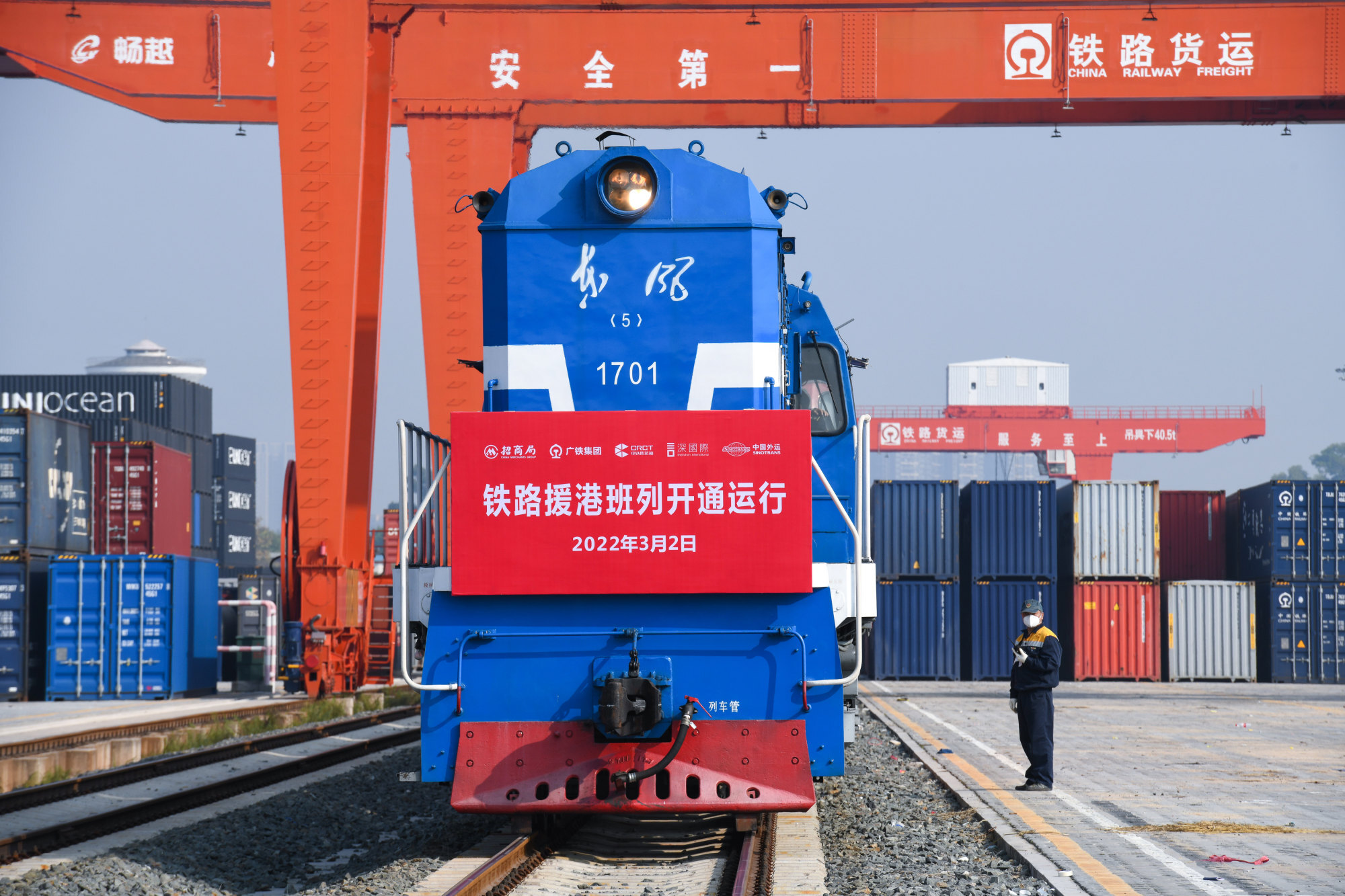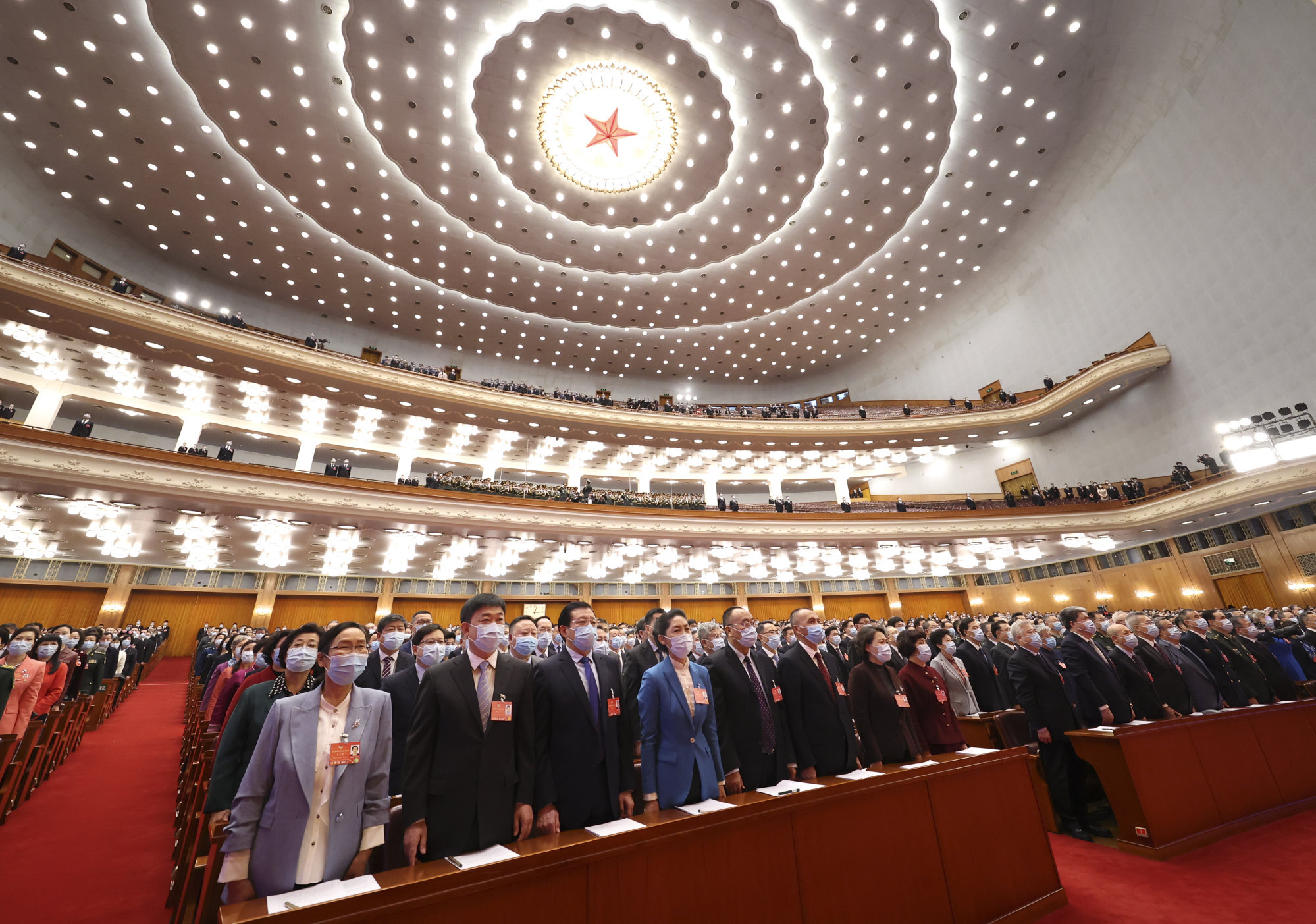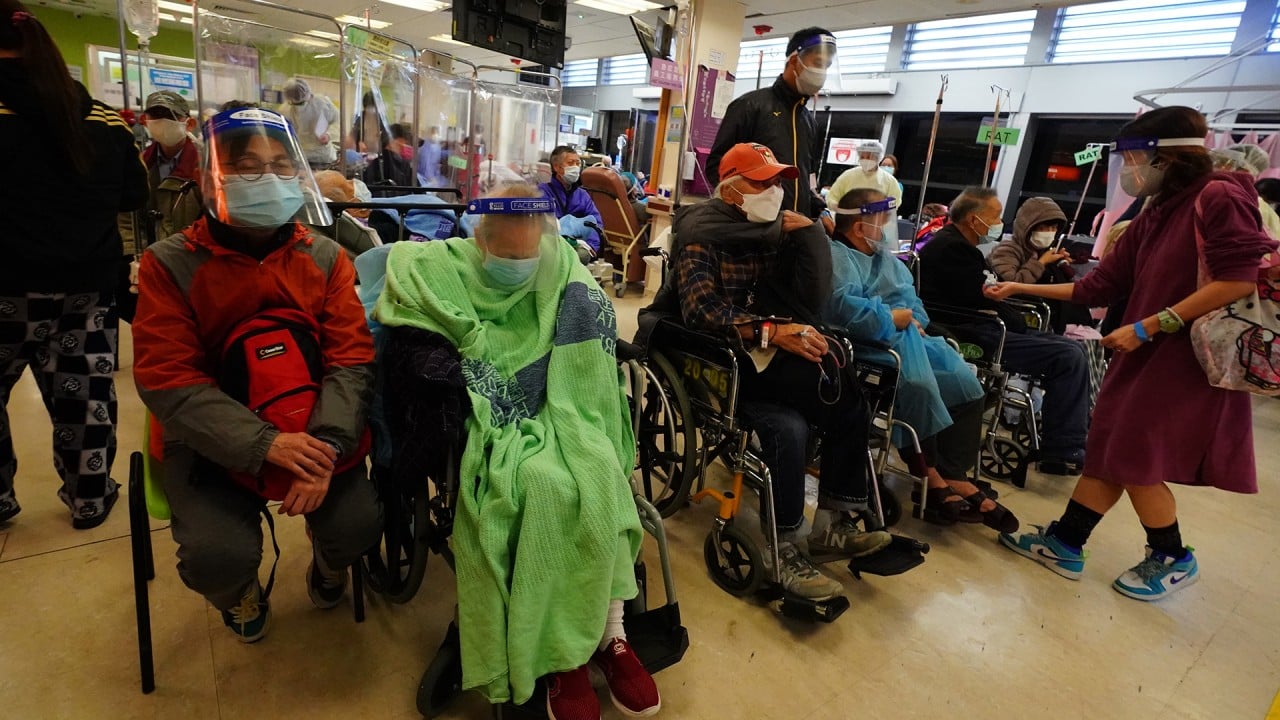
Coronavirus: Chinese state leader pledges firm support for Hong Kong’s Covid-19 fight, takes aim at private hospitals over efforts
- Vice-Premier Han Zheng meets Hong Kong delegates of country’s top advisory body, urges city authorities to prioritise care for elderly Covid-19 patients
- Hong Kong confirms 31,008 new Covid-19 infections – the second day in a row case numbers have fallen – taking the city’s official tally to 471,617
Political analysts said the remarks reflected Beijing’s disappointment that despite guidance from top mainland experts, the Hong Kong government had yet to curb a raging fifth wave of infections and mobilise enough resources in the private sector to fight the pandemic.

But a representative of the city’s private hospitals said they had been cooperating with government requests and were trying to help.
Hong Kong on Sunday confirmed 31,008 new Covid-19 infections – the second day in a row case numbers have fallen – taking the city’s official tally to 471,617. However, Dr Albert Au Ka-wing of the Centre for Health Protection said it was too early to read anything into the decrease.
“We need to monitor for another one to two weeks at least to find out if we have reached the peak and cases start to fall, we can’t determine if we have reached the peak yet,” he warned.
Hong Kong health expert warns residents against high hopes of Covid immunity
But deaths hit a record, with the Hospital Authority reporting 153 new fatalities in the past 24 hours, involving patients aged between 31 and 105. Another 76 people, aged 24 to 105, died earlier but the cases were only reported on Sunday due to a backlog. The Centre for Health Protection also announced four additional deaths, of patients aged between 56 and 89, which did not go through the authority’s system.
The city’s Covid-related death toll is now 2,007.
As of Saturday night, 57 patients were critically ill, including 42 who were unvaccinated, while 123 were in a serious condition, with 79 not jabbed.
State broadcaster CCTV reported on Sunday night that during the meeting with delegates from Hong Kong and Macau, Han said the city’s epidemic situation was critical.
“The city’s government must take up the main responsibility, and all relevant central and regional authorities need to fully support it and ensure [the steady] provision of supplies to strengthen medical aid,” Han said.
According to CPPCC member Thomas Pang Cheung-wai, Han accused Hong Kong’s private hospitals during the meeting of going against the medical sector’s mission to save lives because of their reluctance to open their doors to more coronavirus patients.
“The vice-premier said he saw on the internet that private hospitals in Hong Kong had refused to take Covid-19 patients, and asked if that was true,” Pang added.
“The delegates said yes, and Han replied: ‘How is that possible? That is not right, how can a city only rely on the government’s hospitals to fight the pandemic? Even [during the first coronavirus outbreak] in Wuhan in 2020, all public and private hospitals were involved.’”
Half of all Hong Kong public hospital beds to be set aside for Covid patients
But Dr William Ho Shiu-wei, chairman of the Hong Kong Private Hospitals Association, said it was “not completely fair” to suggest they were not treating Covid-19 patients, explaining they still looked after people who tested positive during admission and were waiting to be transferred to a public facility.
According to Jonathan Choi Koon-shum, a member of the CPPCC’s Standing Committee, Han had also said: “Whatever Hong Kong wants, Beijing would supply and provide.”
Choi added: “He said Beijing would fully support the city’s anti-epidemic work and has so far convened several coordination meetings on Hong Kong’s situation.”
He said Han gave a detailed account of how mainland authorities and state-owned enterprises had been helping Hong Kong, including building medical facilities, supplying essential equipment and goods, and deploying more personnel.
The vice-premier also said Beijing would ensure that the supply of medical goods and daily necessities to Hong Kong continued to remain stable.
Delegate Jeffrey Lam Kin-fung said: “Han added that he knows Hong Kong people love fresh food, so mainland authorities will ensure that, whether it’s through boats, railway or roads.”

Lawmaker and CPPCC delegate Johnny Ng Kit-chong said the vice-premier mentioned that while Beijing had sent their best anti-epidemic personnel to help Hong Kong, more assistance would be provided if necessary.
“Since Hong Kong has yet to reach a turning point [in the outbreak], Beijing has also drawn up contingency plans,” he said.
Hong Kong’s delegation also spoke of how Han had urged authorities to prioritise the treatment of infected elderly residents.
CPPCC member Kenneth Fok Kai-kong said the vice-premier spoke for 45 minutes and had relayed the concerns of President Xi Jinping and other top mainland officials.
“The top priority is to save lives, especially the lives of the underprivileged and the elderly,” Fok said, citing Han’s remarks during the meeting.
“The central government will respond to every request from Hong Kong, and fully accept the city’s wish lists … to ensure Hong Kong people’s daily lives will not be affected.”
Fok added that Han had doubled down on Xi’s earlier demand that the city’s government “take up the main responsibility” for fighting the Covid-19 outbreak.
Ng said the vice-premier had also spoken on how Beijing would firmly implement the “one country, two systems” principle under which Hong Kong is guaranteed a high degree of autonomy, with the city told it must continue to integrate into the nation’s development plans.
Asked if Han had mentioned Hong Kong’s leadership race, Lam only said the vice-premier had supported Chief Executive Carrie Lam Cheng Yuet-ngor’s decision to postpone the process from March 27 to May 8.
Lau Siu-kai, vice-president of semi-official think tank the Chinese Association of Hong Kong and Macau Studies, said Han’s remarks showed that in Beijing’s eyes, Hong Kong’s fifth wave of infections had snowballed into a serious health crisis or even a political one.
“As the number of infections and deaths have continued to rise in the past week, fear is spreading in society, and the people’s grievances against the government are also going up,” he warned. “That could be very unfavourable for Hong Kong’s governance and stability.”
Lau also said he believed Han’s remarks showed that the Beijing leaders had been “very worried and disappointed” about the situation in Hong Kong.
On the private hospitals, Lau said the government should have used any administrative and legal means available to get them to help and yet it had not done so.
Tam Yiu-chung, the city’s sole delegate to the NPC Standing Committee, said state leaders found it “strange” that private hospitals had been doing so little.
“Was it because of the government’s policy and division of labour, or was it because some private hospitals are unwilling to help since they don’t have negative-pressure wards?” Tam said.
“I think there must be some way to coordinate better and exhaust all resources possible.”
Han is also expected to meet Hong Kong delegates of the nations’s top legislature, the National People’s Congress (NPC), on Monday morning. The CPPCC and the NPC kicked off their annual sessions on Friday and Saturday, respectively.

Meanwhile, Han will be joined by another vice-premier, Sun Chunlan, in coordinating cross-border support for Hong Kong’s anti-epidemic efforts.
Sun, who is ranked second among four vice-premiers in the State Council after Han, has been the top official in charge of epidemic control efforts in the mainland since the Covid-19 outbreak in Wuhan in 2020.
CPPCC delegate Eliza Chan Ching-har said she believed the presence of an experienced vice-premier such as Sun, who oversees the nation’s medical and health sector, would help strengthen Beijing’s efforts to turn around the critiical situation in Hong Kong.
Tam also said Sun’s involvement, if confirmed officially, would be in line with Beijing’s policy of deploying the best talent to handle Hong Kong’s situation.
Public hospitals have started implementing plans to repurpose half of all their beds for the treatment of Covid-19 patients by the end of this week to cope with the exponential growth in cases, the Post has learned.
In a separate development, Secretary for the Civil Service Patrick Nip Tak-kuen’s press secretary tested positive for Covid-19, the government said. Nip has been taking rapid tests every day and the results have all been negative.



